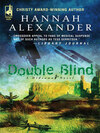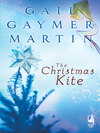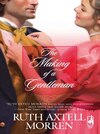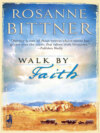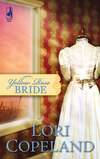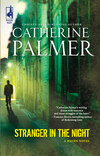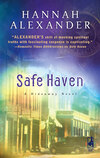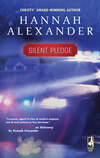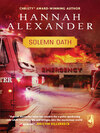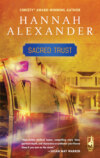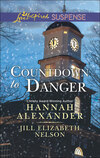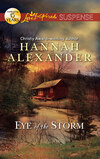Kitabı oku: «Double Blind», sayfa 5
Chapter Nine
S heila felt sick all of a sudden—and in over her head. She had lost all her curiosity about her mother, though she was sure that would return. But now, everything seemed to be happening too quickly.
“So, I think we’ve exposed everything about Sheila that we can tonight,” she said drily, hesitating at the cafeteria door. “Why don’t we learn a little about Dr. Canaan York?” Anything to delay the inevitable plunge.
To her relief, he took the hint and ceased further probing. He also didn’t open the door. “I’m not a good principal.”
“Most doctors I know wouldn’t make good principals, but this position is temporary, isn’t it?”
He nodded. “If I can make it three more weeks.”
“I understand this has been your first year at the school clinic.”
He looked at her. “I’m sure Granddad managed to tell you everything about my life since you left. He has a tendency to…um…boast a little more than I’d like him to.”
“Oh, yeah, you mean the way he has of saying, ‘My grandson, the doctor,’ every other sentence?”
Canaan chuckled.
“He told me you joined a clinic practice in Ganado as soon as you’d completed your residency.”
“That’s right,” Canaan said. “Many of the Twin Mesas’ graduates went to college in Ganado, so I knew many of my patients already.”
“Sort of like built-in job security,” she said.
Canaan hesitated. How he wished he’d been able to have built-in marriage security so easily. “You know how hard it can be for The People to trust outsiders, or even strangers in our tribe.”
“Your grandfather said a large percentage of Twin Mesas’ graduates go on to college.”
“Yes, Granddad’s proud of that.” Canaan hesitated. “I am, too.”
Sheila glanced up at the change in his voice. “You don’t sound too sure of that.”
He shook his head. “Some of the graduates didn’t make it to college. Two didn’t even live to graduate. They had such high hopes for the future, but they died before they could realize their dreams.”
“How?”
“Accidents.”
“What kind of accidents?”
“One from heatstroke. He was found out in the desert two years ago. He should have known better. He grew up in this desert.”
“And the other?” Sheila asked.
“Car wreck down in Gallup last year. Hit by a drunk.”
“So the deaths were unrelated.”
He grimaced.
She wondered if he realized how poorly he hid his thoughts. He’d never been good at keeping his emotions off his face. “So you came here after you became so concerned about the deaths.”
He didn’t return her look. “After Grandad asked me to.”
“He wanted you here to keep an eye on things,” she guessed.
He glanced through the glass doors into the cafeteria. “And that didn’t work, either. Three died under my watch.”
“And the Hunts were also former students,” she said.
“All three were former students. Bob Jaffrey was, as well.”
“You’re desperate to find out what’s going on.”
He nodded.
“Tell you what, I’ll keep a close eye on your work next week, and give you a critique on Friday.”
“Just what I need,” he said dryly. “Another critic.”
“I’ve heard there’s been quite a turnover of principals in the past few years,” she said.
“Seems that way.”
“I’m not getting myself into the middle of a mess, am I?” she asked. “You know, student pranks, stuff like that?”
“No pranks. Nothing we can’t handle.”
“But there is something.”
He turned to look at her for a long moment as his hand went to the cafeteria door. He grasped the handle, then stood still. “Do you remember when we were kids, we used to try to help Granddad’s neighbor herd his sheep?”
“And we spooked them every time.”
“Right. The kids remind me of those spooked animals.”
“How?”
He opened his mouth, then closed it again, shaking his head. “I’m afraid you’ll see what I mean when you start talking to them.” He pulled open the door. “If you do, will you tell me?”
“I’ll add it to my critique.”
Sheila took a deep breath and preceded Canaan into the noisy cafeteria. The huge room, as modern and clean as the exterior of the building, had been designed with children in mind. Bulletin boards held beautiful drawings and collages. She wondered if Canaan had a hand in the inspiration for some of the masterpieces.
The aromas were the same as they had been nearly a lifetime ago. Sheila knew if she closed her eyes, the smell of yeasty rolls and bubbling stew would draw her back to the days when Betsy Two Horses had stood at the serving line, teasing and laughing with the hungry children.
Recognition and remembered affection warmed Sheila as she caught sight of the Navajo woman. Funny how she could remember Betsy and Canaan and the ruggedness of the land surrounding the school so very well, but she could barely remember her mother’s image.
No, not funny, but certainly sad.
From across the length of the large cafeteria, Betsy didn’t look more than fifty, though she must be past seventy. Tendrils of her hair, still as black as Sheila remembered, had escaped the ponytail that emphasized her thin, angular face. As she reached up to push the strands back, her dark eyes met Sheila’s.
For a moment, Betsy stared. Her thick, dark brows gave her a glowering appearance, until a gleam of recognition lightened the woman’s expression.
Canaan touched Sheila’s arm and led her forward, past the chattering kids holding their trays and the dorm parents who monitored to make sure their charges behaved while the principal was in the room.
“Well, Betsy?” Canaan said. “You told me you’d recognize her.”
Betsy looked at Canaan, then at Sheila. In the light, the deep lines of her face belied the youthful blackness of her hair, but the warmth in those eyes welcomed as it had so long ago.
“I knew her,” Betsy said, then directed her gaze to Sheila. “Did you think I wouldn’t?”
“It’s been a long time,” Sheila said.
Betsy studied Sheila more closely. “You’ve always looked like Evelyn.” She explained to Canaan, “Sheila’s mother.”
“I know,” Canaan said dryly. “I was here, too, remember?”
Before they could talk further, a group—Sheila guessed they were teachers—entered the cafeteria, talking and laughing as energetically as students…until they saw Sheila.
Silence descended, amusement disappeared and the expressions on various faces ranged from curiosity to resentment.
For the first time, Sheila became aware of the paleness of her skin. It felt strange. She couldn’t remember ever feeling out of place at this school when she was a little girl. Always, when she’d been here, she had belonged.
Canaan touched her arm and addressed the new arrivals. “Come and meet Sheila Metcalf, the nurse Johnny Jacobs has hired to help me in the clinic. She and I attended school together here when we were children, which means she’s one of us.”
Sheila felt only slightly relieved when a few of the expressions lightened. One heavyset woman who had passed them earlier with a group of children stepped forward and picked up her tray, interest sharpening her delicate features.
“I hear you’re going to examine my kids,” she said, selecting her silverware. “I have first-and second-grade girls.”
“This is Jane Witherbe,” Canaan told Sheila, putting an arm on the woman’s shoulder. “She’s been a teacher and dorm mother here for a lot of years.”
Jane nodded, dark eyes friendly, and the smile revealed she was older than she first appeared. “I remember you, Sheila. My first year here was—” the smile disappeared “—it was the year you left.”
“You’ll like her kids,” Canaan said smoothly. “They’re well behaved.”
Another of the women spoke up. “They’re all good kids. They mind their teachers and dorm parents.”
One of the men snorted, his expression still grim, his gaze most unwelcoming as he studied Sheila’s face. “That’s because they’re all Dineh. ”
Sheila knew that word. It was what the Navajo called themselves. It meant The People. The man looked familiar, and for a moment Sheila held his dark gaze. She remembered his name without having to be told. Kai Begay. He’d been a teacher-parent when Sheila had lived here. But he hadn’t been unfriendly then, had he?
“Sheila was with us for several years, Kai,” Canaan said. “You should remember her, since you were here at the time her parents came. Her mother was our nurse, and her father helped the local farmers to utilize their land more efficiently.”
Kai Begay’s chin came up as he met Canaan’s gaze and held it for a moment. Canaan returned the look. Kai cleared his throat and looked away.
Something relaxed inside Sheila. Canaan might not feel as if he would make a good principal, but he was obviously making an effort to retain control of the staff, no matter how unpopular that might make him.
Betsy Two Horses returned her attention to the steam table in front of her.
As the talk increased and the tension eased, Sheila pushed her tray along the counter.
Betsy gave her a quick once-over. “You’re starving yourself,” she said, her voice brusque as always, but her eyes still warm.
“I’ve actually gained some weight,” Sheila told her.
“Well, gain some more.” Betsy held up a ladle of stew. “Mutton.” Her dark eyes gleamed with the barest touch of humor. “Your favorite.”
Sheila nodded and enjoyed the look of surprise on Betsy’s face. She’d never developed a taste for the stew as a child, and she’d been teased about it a few times. But who was to say her tastes hadn’t changed in twenty-four years?
When Canaan turned with his tray toward a far table, Sheila glanced at Betsy wistfully. When the glass door opened and more people entered, Sheila turned away and wove between the tables to where Canaan waited. Later. She and her old friend would have time to become reacquainted soon.
In spite of what she’d told Canaan, Sheila had no appetite. In fact, she hadn’t felt hungry all week. Now, as she glanced into the bowl of thick stew, nausea bubbled in her stomach. The reaction of the dorm parents, especially Kai Begay, concerned her. It didn’t help that she felt as if time had shifted, as if she were a child again.
Canaan held her chair out for her.
He sat down after she did. He bowed his head, said a brief prayer softly, as if to himself, then tore off a corner of his bread and dipped it in his stew.
“Fry bread?” Sheila asked. “I didn’t see that.”
He chewed, swallowed. “You were so busy watching Betsy, you pushed your tray right past it. She was always good with us kids, wasn’t she?”
Sheila nodded, fingering the cross at her throat. “She gave me this.” She glanced toward the serving line, where Betsy was greeting incoming diners with a quick word or nod.
“That necklace?” Canaan bent forward and examined it more closely. “Did she make it?”
“No, her husband made it for her a few years before he died. She gave it to me after my mother died.”
“It’s skillfully made. Do you wear it often?”
Sheila nodded. “Almost all the time when I was growing up. Every time I touched it, I could remember that someone loved me enough to give me something that meant a lot to her. She told me that she had worn it constantly after her husband’s death, until her fear of life went away and she no longer felt alone.”
“Do you still feel alone?”
She gave him a wry look. “I’m thirty-four years old, I have plenty of friends in Hideaway, my father is whole and healthy and Preston…” She smiled.
“Yes? Preston…?”
“A good friend.”
“Is that a euphemism for a person of consequence in your life?” Canaan asked.
“Let’s just say my life is full and very interesting at the moment.”
“Because of Preston?”
Though Canaan watched her intently, she didn’t elaborate. Best not to get into a discussion about other difficulties in her life right now.
Obviously curbing his curiosity, Canaan gestured toward the teachers and dorm parents who were making their way to a long table set apart from the children. “Most of the staff are warmhearted, good people. There will always be a certain percentage of people who have trouble accepting newcomers, no matter who they are, or what color.”
“I’m no newcomer to Kai Begay,” Sheila reminded him. “He knew me when I was a child, and I don’t remember any resentment from him then. I don’t remember the problem being so prevalent here before.”
“You were a child then.”
“Children can sense things, and I would have sensed that brand of prejudice.”
“But Kai is not antagonistic with children,” Canaan said. “He loves them, which is why he’s remained here all these years. This is his life.”
“Did he treat my parents the way he’s treating me now?”
Canaan pulled off a section of his fry bread and set it on her plate. He drizzled honey from a plastic container on the table on the other piece. “Kai has always been outspoken, but he loves the children.”
Sheila watched him take a big bite of the bread. “You didn’t answer my question, and you’re just repeating yourself. Does he pass his prejudice along to the children?”
Canaan chewed and swallowed, chewed and swallowed, giving her a disgruntled look. “You never broke that habit, did you?”
“Of what?”
“Asking me a question as soon as I put food in my mouth.”
“You’re doing better, though. Now, at least, you don’t talk with your mouth full.”
Canaan gave his sweetened bread a loving look, then set it back onto his plate. “Kai eats with the kids and spends a lot of his free time with them. What do you think?”
“It’s a shame he feels the way he does. The children need to learn to get along with people of every race if they’re to function in the world outside the reservation.”
Canaan nodded, picking up his bread again. “You’re right. Absolutely. Now let me eat.”
Sheila sighed and picked up her fork, faking an appetite, though she didn’t expect to fool Canaan. He seemed to remember a lot of things about her, and his memories intrigued her.
Chapter Ten
C anaan watched Sheila play with her fork, studying those long, slender fingers, remembering how those strong hands had done physical battle for him once upon a time.
She shouldn’t be here rescuing him now. As a child, she’d acquired some bruises and a couple of cuts on the playground while standing between him and the bullies. This time, worse things could happen.
She stopped fiddling with the fork and looked up at him. “Why are you frowning?”
“Was I frowning?” He took a bite of the fry bread.
“I doubt Kai’s the only one on the reservation who feels the way he does,” Sheila said, picking up on their previous conversation as if nothing had interrupted it.
Canaan shrugged.
“I’m just curious about who’s being taught to resent those with different skin,” she said. “Do all the kids have this resentment toward whites?”
Dropping the bread again, Canaan sighed and leaned back. “Of course not, but I can see both sides. I’ve been involved in arguments concerning both sides. Bigotry is a waste, and I obviously hate it more than most, but some of Kai’s opinions are valid.”
“For instance?”
He sighed and leaned forward again, resting his elbows on the table and lowering his voice. This was the Sheila he remembered, but the grown-up Sheila in argument mode might prove to be a little more daunting than his young friend of days gone by.
“Don’t look at me like that,” he said. “I’m not condoning verbal abuse or prejudice. But the elders hate to see their long-held customs die away to nothing.”
“You’d be amazed how often I hear that in Branson. It isn’t just here on the reservation, Canaan. Nothing stays the same. Time changes everyone.”
“I bet you don’t hear anyone complain about the dying language of America in Branson.”
“You don’t get out much, do you?” Sheila asked. “Branson is all about tourism, and tourism, in its way, is a kind of subtle corruption of the country, with a constant influx of people from other cultures, with other languages.”
“I’m not talking about just a dying language, but a dying heritage that our people have honored throughout our history,” Canaan said. “The children in this school don’t speak the language of the Dineh anymore. The old ones tell them the old stories, which are considered fairy tales by many of the children.”
“Is Kai teaching them?”
“He tries. So do Jane and Betsy, and even my grandfather when he comes to the school, though he’s white. The children feel it’s pointless to learn a useless language or outmoded customs. They don’t honor the things their parents honored.”
“If their parents honored the language, wouldn’t they have spoken it at home?” Sheila asked. “The kids would have learned it there.”
Canaan shook his head, frustrated. “You’re not getting it, Sheila. More and more of our young people are leaving the reservation and never coming back—never giving anything back to the heritage that made them who they are. I don’t think that was Granddad’s intention when he established the reservation schools.”
“What’s changed?” she asked. “Your people have always been either stuck here on this reservation, struggling to make a living, or forced to leave their home and family traditions and join the white society.”
“In this area, especially, resentment is building over the problem.”
She set down her fork and returned his frown. “Why now? It’s been that way since long before I lived here. Besides, the Navajo nation is the largest and wealthiest Native American nation in the country.”
He shook his head, glad she’d at least kept her voice down as she revealed her ignorance so blatantly. He’d have thought Sheila, of all people, would understand. “That tells you how the others fare.”
Sheila stirred her coffee and glanced around the room. Canaan followed her gaze and caught several curious stares, some friendly, one brooding—Kai’s.
“As far as wealth is concerned,” Canaan continued, “the money doesn’t trickle down far enough—our people are as capable of greed and dishonesty as anyone else, especially since many of our ancient ways, which dealt harshly with greed, have been forgotten. We are never allowed to forget that many of us still must depend on the charity of the American government to survive.”
He felt her attention on him, and he realized he sounded obsessed. “It isn’t the same as providing for ourselves,” he said softly.
“But the Navajo are developing their resources.”
“That’s often my argument when the subject comes up. Unfortunately, others are not so optimistic. The problem isn’t recent. Much of it stems from the way our people were treated in the past.”
“The broken treaties?”
“Not that far past. I’m talking about the earlier mission schools, where kids were punished for speaking their native tongue.”
“I remember Dad talking about those schools, but he was indignant about them.”
“Then your father might be more sympathetic to our situation than you seem to be.” Canaan realized that had come out too sharply.
She ignored his slip. “How does this antiwhite attitude differ from those early mission schools? Bigotry is bigotry, no matter what side you’re on.”
“There might be a little more to it than that,” Canaan said, then shook his head and shot a quick glance toward Kai.
“He dislikes me, personally?” Sheila asked.
Canaan grimaced. “He doesn’t even know you now.”
“He remembers my parents.”
Canaan remembered overhearing Kai use some very strong words about Evelyn. Sheila didn’t need to know about those things spoken in the heat of anger.
“Did my father fight with him over something?” Sheila pressed. “Daddy has always had a quick temper, but it’s been a long time since—”
“No, Kai and your father got along okay.”
Sheila’s hazel eyes—which had always seemed capable of seeing more than she was meant to see—narrowed with interest. “My mother, then.”
Canaan brushed away a memory. “She and Kai had their differences of opinion from time to time, but that’s not quite it, either.” He leaned forward and lowered his voice. “Kai’s still guided by some of the beliefs with which he was raised. He knows your arrival will stir memories of your time here as a child and of your mother’s death. Her name is sure to come up.” That much was true, anyway.
“You bet it is.”
“Did you ever notice, when you were a child, that the Navajo avoid speaking the names of the dead?”
“Yes, I think I remember. But I never knew why.”
“It’s because of a fear that the spirit of the dead will overhear, and think it’s a call to return. Of course, it is believed that any lingering spirit is always evil.”
“I thought the spirit was believed to linger for only four days after death,” she said. “Not twenty-four years.”
“Well, your mother’s death is still a mystery. We had no peace about her passing.”
“You can’t possibly be saying you think my mother’s ghost is still hanging around the school, seeking revenge on someone.”
“Of course not, but I can’t deny that others might be entertaining those concerns. Your presence here will bring back her memory. Who knows what kind of trouble that could stir up.”
Sheila sat back in her chair with a sigh.
Canaan knew she might find out more about her past if she dug deeply enough, but at what cost? He’d told Granddad this was a bad idea.
Canaan finished his stew, then glanced at Sheila’s untouched tray and felt immediately contrite. “Here I am depressing you.”
Sheila grimaced. “If you meant to put me on a guilt trip, that was a good send-off.”
“Why should you feel guilty?”
“I’m white. Isn’t it understood in this country that white Americans must pay for all the nasty acts of their ancestors?”
Canaan leaned closer. “Unfortunately, your…whiteness might have been part of Tanya’s problem this afternoon.”
“You don’t say,” Sheila drawled.
“But that wasn’t all.”
“Back to the dog again? I promise to talk to Doc as soon as I see him—”
“Yes, I think Moonlight’s death upset her most of all. She’ll get over it. She’s a loving, forgiving child, and I know she’s curious about you, even though she’s struggling with ingrained family prejudice.” He took his fork and speared a chunk of mutton from Sheila’s untouched bowl of stew.
Typically, most people under a great deal of pressure lose their appetites, but he seemed to have an iron stomach.
“Mind telling me again how you came to have that blowout on the road?” he asked.
Her eyes narrowed. “The story hasn’t changed, Canaan.”
“You’re talking about a dog disappearing in a puff of smoke, which distracted you and caused you to run off the road and hit a rock. Or you’re considering the possibility that there might have been two dogs.”
She nodded, wincing at his tone. “Crazy as it sounds.”
“What about the sun’s glare?” he asked. “That glare was bad today. What if the dog you saw was a reflection? Moonlight could have been to the right of your Jeep, but her reflection in the window could have doubled, making you think you saw her to your left.”
“Or what if I’m lying to you? Or what if this is another dream I’m having, and I’ll wake up with you pounding on my door, insisting it’s dinnertime.”
He sighed. “It doesn’t hurt to consider other possibilities.”
“Any more up your sleeve?”
“I heard a report from a delivery guy, Charlie, who comes through here twice a week.”
She groaned. “Oh, great, you’re really serious about this. So tell me what the delivery guy saw.”
“He said he saw a tan-colored Jeep weaving all over the road before stopping at the side of the road.”
Her gaze sharpened. “Did he see the dog? ”
“He didn’t mention it, and he was coming from the other direction, possibly too far away.” He hesitated. Stared down into the stew. Hesitated some more.
“What is it?” she asked.
“Do you drink?” He had to ask for the sake of thoroughness.
She blinked, obviously irritated now. “All the time. I drink water, milk, lemonade—”
“Were you drinking liquor this afternoon?”
She glared at him. “Did you smell any on my breath?”
He winced inwardly, hating this conversation. “I’m not trying to accuse you of anything, and I’m not trying to give you a hard time, but Charlie did—”
“Yes, I know, Charlie saw me weaving all over the road like a drunk.” She glanced around, then leaned closer. “Why couldn’t the jerk have come to see if I was okay, instead of tattling to my boss and causing me more trouble?” she asked more softly.
“I didn’t ask him that.”
“No, Canaan, I was not drunk this afternoon—you didn’t smell anything on my breath. Did I act drunk when you talked to me? And no, I don’t do—” She broke off, obviously aware that her rising voice had attracted the attention of several of the diners around them. “I don’t do drugs. Feel free to do an alcohol or drug test on me anytime, but I’d better see everybody else taking the same test. You have no reason to accuse me—”
“Would you please keep your voice down?”
She closed her mouth again.
“Look, I didn’t ask to be interim principal, and I know I’m not doing a very good job of this, but give me a break, will you? I’m doing the best I can.”
“Well, I could have done without this lovely dinner tonight.” To his surprise, her voice softened, and he recognized a dry humor deep in her eyes. “My driving skills may be in question, but there’s no reason to suspect me of anything else. Fortunately for this school and for my career as a nurse here, my job does not include driving. Are you this nosy all the time? With everybody?”
“I’m not being—”
“Oh, yeah, I remember now.” Her voice dropped a few decibels. “You always were curious about everybody else’s business.”
“I was concerned.” He tried to scowl at her, but somehow he couldn’t put his heart into it. He was remembering an incident when they were kids on the playground, fighting over a ball. She had won the argument; he had given in first. Then she gave him the ball. She wasn’t afraid of a fight. In fact, she seemed to love a good one. But she never held resentment. She forgave easily.
Two more people entered the cafeteria, and Canaan glanced toward the door. “Here come Doc and Tanya.”
“Right. I guess I’d better get ready for round two,” Sheila muttered. “Tell me what grade Tanya is in.”
Canaan watched Tanya for a moment, saw the nervous darting of her gaze, the tightness of her arms folded over her chest, the way her black hair fell into her face. “She’s in seventh grade, but for some reason she had trouble in school last year and has been taking the remedial reading class. She’s twelve going on eighteen, and very bright.”
As Doc went through the serving line, Tanya’s gaze reached Canaan. She nibbled her lower lip when she saw Sheila beside him. Instead of picking up a tray, she left Doc and wove her way around the tables to Canaan and Sheila.
She stopped beside Canaan, her brown arms still crossed, an expressive, dark brow lifted as if in summons.
“You promised.”
“There’s time yet,” Canaan said. “There’s no reason to be impolite.”
“It’s dark, Canaan, and you promised to…” She glanced at Sheila, stuck her chin out, and continued, “…to exorcise the dorm.”
Sheila audibly swallowed a gasp.
Canaan avoided looking at her. She must think he was a madman.
Ücretsiz ön izlemeyi tamamladınız.
